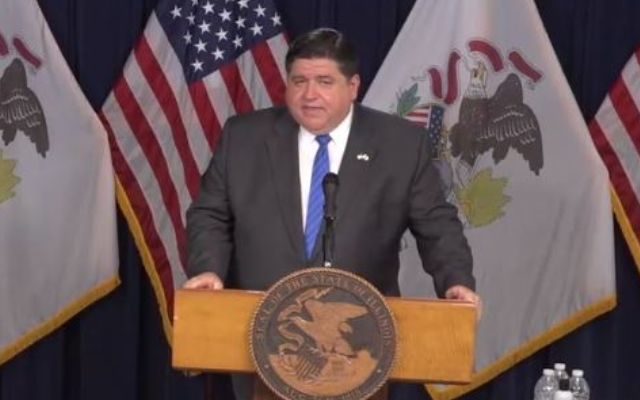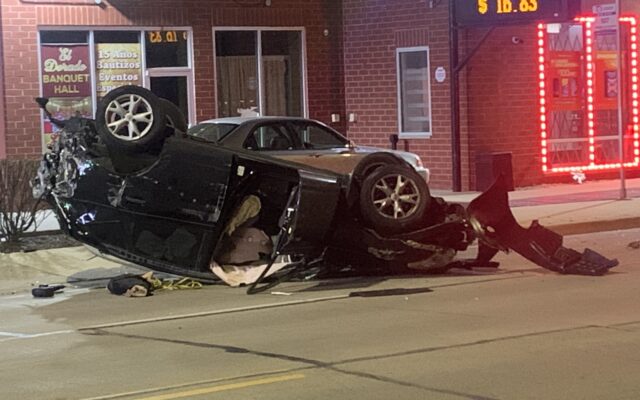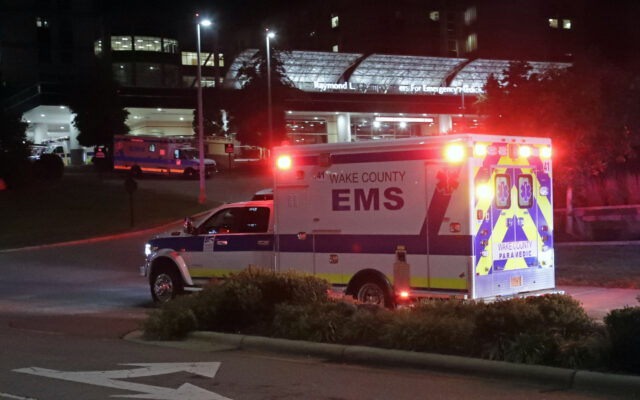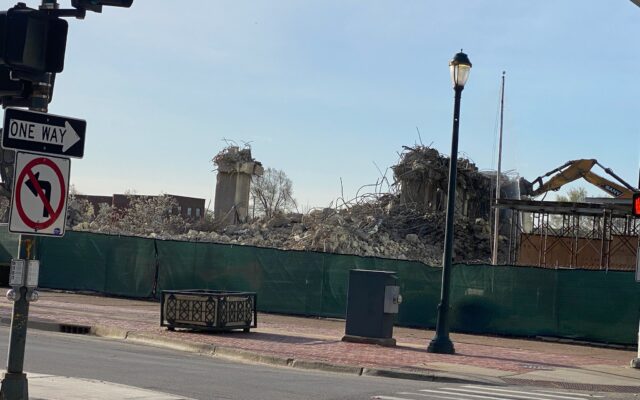Gov. Pritzker Signs Package of Legislation Supporting Domestic Violence Survivors

A Joliet mother helps to get legislation to help domestic violence survivors.
Joined by state lawmakers and survivors of domestic violence, today Governor JB Pritzker signed seven pieces of legislation into law to address domestic violence and remove some of the obstacles survivors face.
“Every difficult choice and obstacle we eliminate for victims of domestic violence unlocks an opportunity for them to prioritize their safety,” said Governor JB Pritzker. “While our work to make Illinois a safer and more compassionate state for survivors is not done, I am heartened by the steps we have taken today.”
“As chair of the Illinois Council on Women and Girls, we have been focused on preventing gender-based violence and supporting survivors,” said Lt. Governor Juliana Stratton. “I am thankful that Governor Pritzker is prioritizing gender-based violence and his signature on these bills is just one more example of how we are working to make Illinois safer, more equitable, and empowering for women and girls.”
“A permanent Illinois Forensic Science Commission will drive improvements in the collection and analysis of forensic evidence,” said ISP Assistant Deputy Director of Division of Forensic Services Robin Woolery. “An Illinois Forensic Science Commission will be a forum for discussions between forensic science stakeholders to improve communication and coordination and ultimately empower them to monitor and address the important issues. By taking a strong systems-based approach, Illinois can further address the inefficiencies that contribute to backlogs.”
House Bill 3317 creates the Domestic Violence Taskforce Act, also known as Colton’s Taskforce. It’s named after Colton Miller, an 18-month-old who was tragically killed by his father during in a domestic violence incident. Colton’s mother Cassandra Tanner-Miller worked to get this legislation passed in honor of her late son. Colton’s Taskforce will conduct a comprehensive review of processes, operations and enforcement of domestic violence laws in the state, identify gaps and develop recommendations to protect victims and survivors of domestic violence, while holding offenders accountable. HB 3317 takes effect immediately.
“I’m grateful to sponsor a bill that helps victims of domestic violence,” said State Senate Deputy Republican Leader Sue Rezin (R-Morris). “There are thousands of stories like Cassandras. We have a moral obligation to protect and provide resources for victims and their families.”
“Colton’s Taskforce will have inclusive membership, including domestic abuse survivors, law-enforcement officials and legal experts,” said State Representative David Welter (R-Morris). This will allow the state to take a more comprehensive look at its domestic violence laws, including best practices and laws from across the country.
From the WJOL files: In September of 2019, Cassandra Tanner-Miller recounted that horrific day on Saturday, September 21st when her estranged husband appeared at her door with a gun in his hand, a smile on his face and said, “Are you all ready to die today? We’re all dying today.” He beat up Cassandra, while she yelled at her 9-year-old daughter to grab the baby. But she was unable. Mother and daughter managed to get away from their abuser and run for help. The Kendall County Coroner revealed the baby suffered multiple gunshot wounds.
House Bill 3582 expands the Illinois Victims’ Economic Security and Safety Act (VESSA) to provide economic security and safety for more survivors of violent crime.
With VESSA, survivors may take up to 12 work weeks of unpaid time off during any 12-month period. Employers must make reasonable accommodations in the workplace and are prohibited from discrimination in terms of hiring, firing, income, promotion, harassment and retaliation against VESSA-qualifying employees.
In addition to victims of domestic violence, sexual violence and gender violence, the provisions of the Act now apply to victims and family members of victims of crimes of violence. The amended definition expands even further who qualifies as a “household or family member” and leaves it up to the employee to determine whether an individual meets this definition. HB 3582 takes effect January 1, 2022.
“Trauma can often be a life-changing experience, so victims and survivors of violent crimes and their families should be able to deal with that trauma on their own time without having to risk losing their jobs,” said State Senator Robert Peters (D-Chicago). “Otherwise, we’re creating a situation where a person might experience serious trauma and then suffer loss of livelihood as a result. Trauma should never beget more trauma.”
“Too many people who are survivors of criminal activity are left without resources or the support they need to process the trauma and heal, such as time off from their job,” said State Representative Robyn Gabel (D-Evanston). “This new measure will ensure that all survivors of crimes of violence and their family members, in addition to survivors of domestic violence, sexual violence, and gender violence, can receive unpaid, job-guaranteed leave and collect voluntary leave benefits, and receive reasonable accommodations and protections from discrimination or retaliation in the workplace.”
House Bill 3223 provides a number of new trauma-informed support and protection measures for K-12 students who are survivors of sexual abuse or gender-based violence, parents and expectant parents. The bill seeks to ensure students of all ages can stay in school, stay safe, and complete their education through a variety of provisions, including:
- Requires schools to have at least one staffer trained to respond to disclosures of domestic or sexual violence or gender-based harassment.
- Outlines confidentiality procedures to protect student privacy and limits the questioning of child survivors of trauma to trained professionals.
- Adds that a valid cause of absence from school includes issues specifically related expectant parents, parents, or victim of domestic or sexual violence.
- Establishes the Success in School Task Force to create and amend policies and procedures that are survivor-centered and rooted in trauma-informed responses to support all students who are survivors of domestic or sexual violence. ISBE will provide administrative support, and the task force will submit its report to the Governor and General Assembly on or before June 30, 2024.
- Requires school districts to review all existing policies and procedures and revise any that act as a barrier to students’ success, specifically those that are expecting or parents, or victims of domestic or sexual violence. The review must take place no later than July 1, 2024, and every 2 years thereafter.
HB 3223 takes effect on July 1, 2025.
“Feeling neglected at school is something our students should never have to experience, especially if they are survivors of domestic or sexual violence,” said Senate Majority Leader Kimberly A. Lightford (D-Maywood) . “Providing safe learning environments will help ensure that all students are supported by their schools.”
“HB 3223 provides schools with concrete, trauma-informed guidelines for helping students,” said State Representative Anna Moeller (D-Elgin). “We know that schools are already dealing with students who are the victims of sexual assault or who are pregnant or parents and this law makes sure they’re doing it in the right way so students can stay in school and go on to live healthy lives.”
House Bill 3484 allows a party in divorce proceedings to request that the opposing party pay an allowance for an initial retainer fee to hire an attorney as a form of interim fees. It will help people with limited incomes receive equitable counsel. HB 3483 takes effect January 1, 2022.
“Divorces can cause emotional stress for all family members involved— and especially for a domestic violence survivor who depends financially on their abuser,” said State Senator Rachelle Aud Crowe (D-Glen Carbon). “This law empowers survivors to hire representation and get out of a dangerous relationship.”
“I am incredibly proud Illinois has taken another important step in ensuring our survivors of domestic violence are protected,” said State Representative Denyse Stoneback (D-Skokie). “By ensuring both spouses have access to fair and equitable legal representation, this bill will help victims achieve financial independence, and overcome one of the greatest barriers survivors face when leaving an abusive relationship. I commend the General Assembly for unanimously passing this legislation and the Governor for advancing justice for survivors of domestic violence.”
House Bill 3485 allows the Illinois Supreme Court to implement a program to issue Hope Cards to petitioners of a plenary order of protection. Illinois currently does not have a Hope Card program, which exists so that survivors of domestic violence can display essential protection order data in a concise and easy-to-read card format. HB 3485 takes effect on January 1, 2022.
“We must do all we can to protect survivors of domestic violence and provide them with the peace of mind that they are safe,” said State Senator Julie Morrison (D-Lake Forest). “Part of helping them should be making that protection convenient and easily documented. The Hope Card will equip survivors with a much easier way to communicate their situation with others and help them feel safer, and I thank Governor Pritzker for letting survivors know we stand with them.”
“The HOPE Card system will allow those protected under a plenary order of protection to not only have a convenient and durable way to carry the information with them, but also to have something simple to give employers, teachers, administrators of a child’s school, or anyone who may need to be aware of the protective order,” said State Representative Denyse Stonebeck (D-Skokie). “These laminated cards are far less likely to degrade or be lost over time and are much more convenient for victims of domestic violence. I am thrilled to have introduced this legislation which passed unanimously and is now being signed by the Governor.”
House Bill 3317 creates the Domestic Violence Taskforce Act, also known as Colton’s Taskforce. It’s named after Colton Miller, an 18-month-old who was tragically killed by his father during in a domestic violence incident. Colton’s mother Cassandra Tanner-Miller worked to get this legislation passed in honor of her late son. Colton’s Taskforce will conduct a comprehensive review of processes, operations and enforcement of domestic violence laws in the state, identify gaps and develop recommendations to protect victims and survivors of domestic violence, while holding offenders accountable. HB 3317 takes effect immediately.
“I’m grateful to sponsor a bill that helps victims of domestic violence,” said State Senate Deputy Republican Leader Sue Rezin (R-Morris). “There are thousands of stories like Cassandras. We have a moral obligation to protect and provide resources for victims and their families.”
“Colton’s Taskforce will have inclusive membership, including domestic abuse survivors, law-enforcement officials and legal experts,” said State Representative David Welter (R-Morris). This will allow the state to take a more comprehensive look at its domestic violence laws, including best practices and laws from across the country.
Senate Bill 685 creates the Domestic Violence Fatality Review Commission under ICJIA with the goal of reducing domestic violence fatalities. It also aims to address disparate practices with the systems that interact with victims, survivors and offenders. The 20-member statewide committee will meet at least quarterly and produce a biannual report for the General Assembly. SB 685 takes effect immediately.
“Families are counting on us to take proactive steps to prevent domestic violence,” said State Senator Celina Villanueva (D-Chicago). “Our plan creates dedicated teams of advocates and survivors to craft violence prevention policy in every corner of the state. These review teams will save lives and I am grateful to the governor for his commitment to keeping women and children in Illinois safe.”
“I am encouraged that the Domestic Violence Fatality Review Commission is being signed into law,” said State Representative Maurice West (D-Rockford). “ This commission will focus on issues specific to every region and will help survivors and prevent victims across our state. By allowing us to examine situations, identify gaps in our system response, implement changes and improve outcomes, we can make our community safer.”
Senate Bill 920 creates the Illinois Forensic Science Commission in Illinois. The commission will include the voice of victims of crime and all stakeholders in the justice system, a recommendation of the Illinois State Police and the Governor’s Task Force on Forensic Science. By taking a strong systems-based approach, Illinois will begin to address backlogs, improve communication and streamline coordination among stakeholders in the industry. SB 920 takes effect immediately.
“This is why we have hearings, to guide the legislation that impacts culture,” said State Senator Patricia Van Pelt (D-Chicago). “There are still people awaiting answers as the DNA backlog decreases, and a commission is needed to improve coordination between police and forensic scientists to help further the decrease in the backlog.”
“I’m confident that this bill will help strengthen Illinois’ criminal justice system by improving access for forensic evidence,” said State Representative Lakeisa Collins (D-Chicago).
The seven new laws signed today build on the actions the Pritzker administration has taken to help reduce the number of obstacles victims face – including strengthening FOID card enforcements to keep guns out of the hands of dangerous people, allowing for the omission of survivors’ addresses from court filings, and investing an additional $1.2 million into Illinois’ statewide network of domestic violence services early on in the pandemic.






